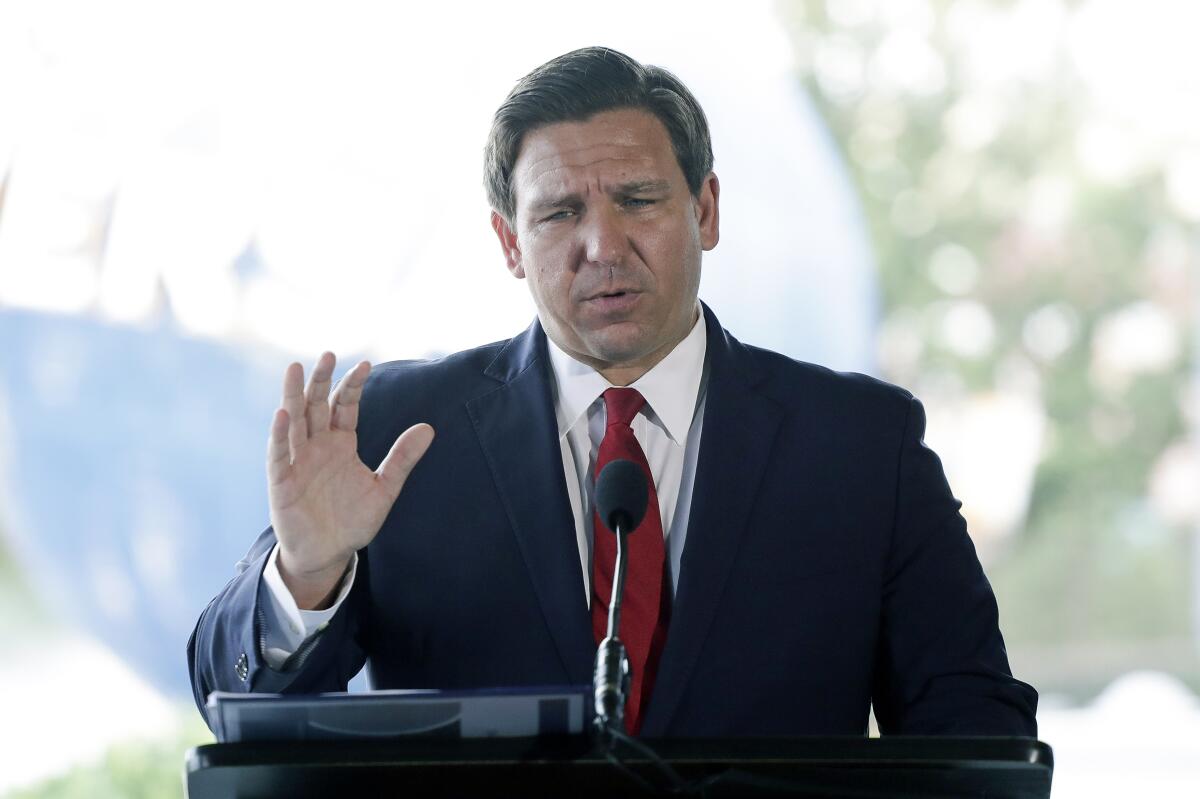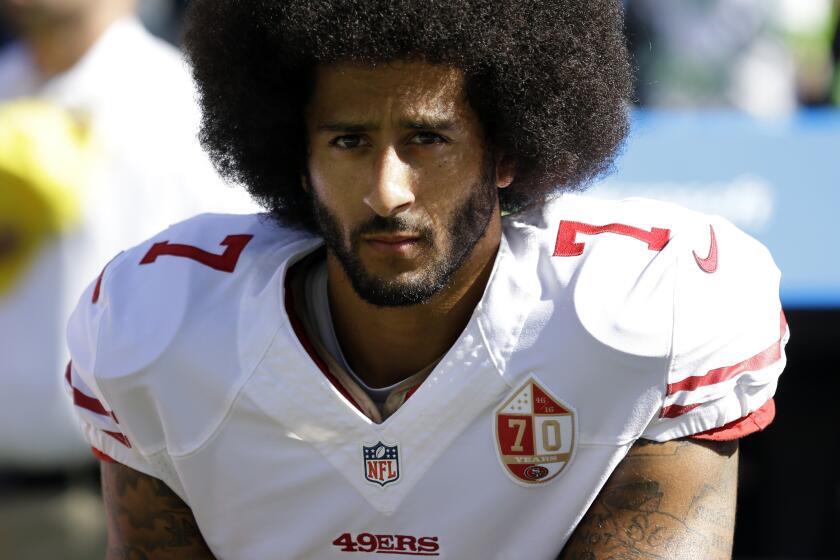Florida governor signs college athlete name, image, likeness compensation bill

- Share via
Florida Gov. Ron DeSantis on Friday signed into law a bill that will allow college athletes in the state to earn money from endorsement deals.
The law won’t go into effect until July 2021. By then, both the NCAA and Congress could have rules or legislation in place to lift restrictions on college athletes being paid for the use of their names, images and likenesses.
Florida is the third state, joining California and Colorado, to pass an NIL law targeting current NCAA rules that restrict college athlete compensation.
Florida’s law, however, increases the urgency for the NCAA to act because it goes into effect 18 months earlier than California’s and Colorado’s. More than 20 more states are working on similar legislation.
After George Floyd’s death, the NFL apologized for not doing enough to fight racial injustice, but it needs to restore what it stole from Colin Kaepernick.
“I just want to say Florida is leading on this and if you’re a blue-chip high school recruit out there trying to figure out where to go I think any of our Florida schools is a great landing spot,” DeSantis said at a signing ceremony and news conference at the University of Miami in Coral Gables. He was joined by former NFL players Jonathan Vilma, who played at Miami, and Corey Simon, who played at Florida State.
The NCAA’s board of governors signed off in April on recommendations to allow athletes access to a free market — with “guardrails” — while also emphasizing that it will need help from Congress to avoid a patchwork of state laws. The NCAA wants its own legislation ready for a vote in January.
Federal lawmakers have expressed concerns about the NCAA’s desire and ability to regulate NIL compensation. They have also said an antitrust exemption for the NCAA is unlikely, but they could move on national NIL legislation later this year.
More to Read
Go beyond the scoreboard
Get the latest on L.A.'s teams in the daily Sports Report newsletter.
You may occasionally receive promotional content from the Los Angeles Times.











